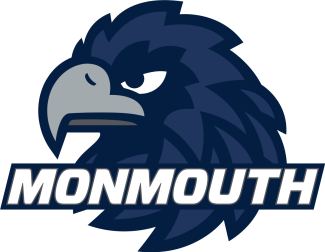Robles is the women’s rowing head coach at GWU and has also served as a head coach of men’s teams. She echoed the importance of finding your own voice.
“I was fortunate to have teammates and a culture that empowered me in finding my voice,” Robles said. “I was able to take that skill development from my collegiate career and transfer it over to coaching. I’ve been fortunate, along the way, to be surrounded by leaders, and being a sponge and absorbing, and listening, and paying attention, and then learning through mistakes. Figuring out what works and doesn’t work, and then adapting, is a big part of being able to lead in a way that is effective.”
Wright stressed the importance of leaders developing relationships with others and connecting with people.
“Being able to find mentors but also create mentors out of others has been one of the most influential pieces that I have found from being in a leadership role,” she said. “Having relationships with people, and caring about them, helps a little bit to not feel that you are out on that limb alone.”
Tuesday’s second session, “Digital Media: Amplifying Women’s Sports”, was moderated by Halley Griggs, women’s director at Inside Lacrosse. Panelists were Haley Rosen (Just Women’s Sports), Lori Lindsey (US Soccer), Kristen Gowdy (Women's Sports Foundation), and Angie Benson (Virginia Tech women’s lacrosse goalie).
“Overall, there’s just this stigma that men’s sports are better than women’s sports,” Gowdy said. “I think that’s something that’s slowly going away, but we need to help that process and keep investing in women’s sports. When people know that women’s sports are happening, the viewership goes up and the coverage goes up.”
“I don’t think women’s sports has a product problem,” Rosen said. “The product is awesome, the women are amazing, the games and leagues are awesome. I think this is a content problem. It’s just not good enough. We need to carve out a space that celebrates these amazing athletes for what they are and who they are.”
Benson noted that social media is helping to amplify the voices of female athletes.
“Now you see people speaking for themselves and you see videos of women’s lacrosse players going viral,” she said. “And because those videos went viral, now ESPN decided to recognize that as a Top 10 video. So, I do think we have our own space and we need to appreciate it.”
A former professional soccer player and midfielder for the U.S. Women’s National Team, Lindsey cited the need for a broader approach in marketing female athletes, and how social media is being leveraged to do that.
“If you can see it, you can believe it,” she said. “In soccer, it has traditionally been white, pony-tailed, thin-body-types that we have put out in front. And that, obviously, is not a great representation of everyone that plays. Social media provides a glimpse of what these athletes are in everyday life, not just on the court or on the field. It gives a more in-depth look into the personalities.”


























































